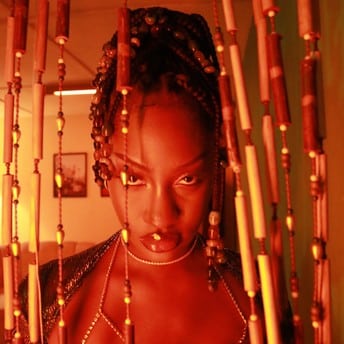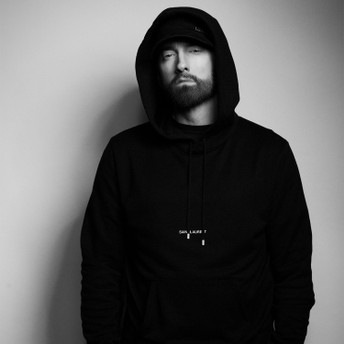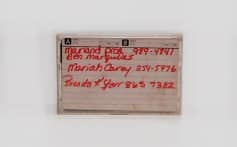R&B/Hip-Hop
Page: 2
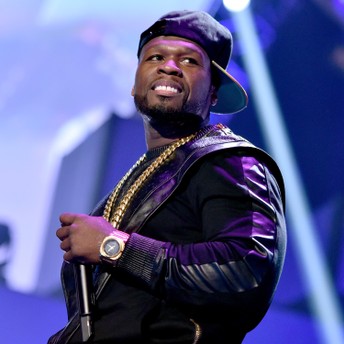
Trending on Billboard
50 Cent’s Sean Combs: The Reckoning documentary is set to hit Netflix on Tuesday (Dec. 2), and ahead of the explosive four-part docuseries’ arrival, 50 and director Alexandria Stapleton sat down with Robin Roberts for Good Morning America on Monday (Dec. 1) to reveal details of the opus about the Bad Boy Records founder’s fall from grace.
Explore
See latest videos, charts and news
The Reckoning obtained never-before-seen footage of Diddy that was reportedly slated for a doc that he was allegedly filming before the embattled Bad Boy mogul’s arrest in September 2024. One scene finds him in conversation with his legal team, imploring them to up their game.
“Listen to me, I am going to let you professionals look at the situation and come back to me with a solution,” Diddy said from what appears to be a hotel room. “Y’all are not working together the right way. We’re losing.”
There’s another scene that shows Diddy amongst the people in Harlem and then asking for hand sanitizer after getting into his car. “I been out in the streets amongst the people, I gotta take a bath. The amount of people I’m coming into contact with, that’s what I have to do,” Diddy said.
50 believes that the scene is a look into Combs’ manipulative ways. “It shows you his character,” longtime Diddy antagonist 50 told Roberts. “What’s the odds you would do that in front of a camera? That’s one of the moments he forgot he was on tape.”
A spokesperson for Combs relayed to the New York Times that they were “deeply concerned” about the inclusion of “private moments” before Diddy’s indictment that are included in the docuseries. “None of this was obtained from Sean Combs or his team, and its inclusion raises very serious questions about how this material was accessed and why Netflix chose to use it,” said Combs spokesperson Juda Engelmayer.
The G-Unit mogul pushed back against the narrative that he’s using the docuseries to needle his longtime foe instead of uplifting the victims’ stories.
“What they consider a pre-existing beef for 20 years is me being uncomfortable with him suggesting he takes me shopping,” 50 Cent added. “I looked at it like I was a tester — like, ‘Maybe you will come play with me.’”
The four-part series also includes interviews with two jurors who delivered the mixed verdict that found Combs guilty of prostitution charges in his federal trial, but dodging charges of sex trafficking and racketeering. Combs was ultimately sentenced to 50 months in prison in October.
The Reckoning — which hits Netflix on Tuesday — will explore Combs’ federal trial and history of alleged sexual abuse. He’s repeatedly denied sexually assaulting anyone despite testimony from two former girlfriends at his trial alleging physical, emotional and sexual abuse. The doc will see contributions from former associates, friends, artists and employees who came forward to detail the world behind the Bad Boy empire.
Watch 50 Cent’s full interview with GMA below.

Trending on Billboard
50 Cent’s Sean Combs: The Reckoning documentary is set to hit Netflix on Tuesday (Dec. 2), and ahead of the explosive four-part docuseries’ arrival, 50 and director Alexandria Stapleton sat down with Robin Roberts for Good Morning America on Monday (Dec. 1) to reveal details of the opus about the Bad Boy Records founder’s fall from grace.
Explore
See latest videos, charts and news
The Reckoning obtained never-before-seen footage of Diddy that was reportedly slated for a doc that he was allegedly filming before the embattled Bad Boy mogul’s arrest in September 2024. One scene finds him in conversation with his legal team, imploring them to up their game.
“Listen to me, I am going to let you professionals look at the situation and come back to me with a solution,” Diddy said from what appears to be a hotel room. “Y’all are not working together the right way. We’re losing.”
There’s another scene that shows Diddy amongst the people in Harlem and then asking for hand sanitizer after getting into his car. “I been out in the streets amongst the people, I gotta take a bath. The amount of people I’m coming into contact with, that’s what I have to do,” Diddy said.
50 believes that the scene is a look into Combs’ manipulative ways. “It shows you his character,” longtime Diddy antagonist 50 told Roberts. “What’s the odds you would do that in front of a camera? That’s one of the moments he forgot he was on tape.”
A spokesperson for Combs relayed to the New York Times that they were “deeply concerned” about the inclusion of “private moments” before Diddy’s indictment that are included in the docuseries. “None of this was obtained from Sean Combs or his team, and its inclusion raises very serious questions about how this material was accessed and why Netflix chose to use it,” said Combs spokesperson Juda Engelmayer.
The G-Unit mogul pushed back against the narrative that he’s using the docuseries to needle his longtime foe instead of uplifting the victims’ stories.
“What they consider a pre-existing beef for 20 years is me being uncomfortable with him suggesting he takes me shopping,” 50 Cent added. “I looked at it like I was a tester — like, ‘Maybe you will come play with me.’”
The four-part series also includes interviews with two jurors who delivered the mixed verdict that found Combs guilty of prostitution charges in his federal trial, but dodging charges of sex trafficking and racketeering. Combs was ultimately sentenced to 50 months in prison in October.
The Reckoning — which hits Netflix on Tuesday — will explore Combs’ federal trial and history of alleged sexual abuse. He’s repeatedly denied sexually assaulting anyone despite testimony from two former girlfriends at his trial alleging physical, emotional and sexual abuse. The doc will see contributions from former associates, friends, artists and employees who came forward to detail the world behind the Bad Boy empire.
Watch 50 Cent’s full interview with GMA below.

Trending on Billboard While Americans were celebrating Thanksgiving by gobbling up turkey, stuffing and more football than is absolutely necessary, Rihanna spent the holiday weekend honoring her home country of Barbados while also sneaking in a few previously unseen pregnancy bikini pics. The singer paid tribute to the Caribbean island nation where she was born […]
Trending on Billboard
Iggy Azalea is officially closing the door on her rap career.
The Australian-born artist, who has shifted her focus to entrepreneurial and digital ventures in recent years, reaffirmed that she does not plan to return to the music industry. The update came via Instagram on Friday (Nov. 28), when the “Fancy” rapper shared a selfie that prompted a fan to ask whether she had recently signed a new record deal.
“F*** no,” Azalea replied in the comments. “But I did consider signing, for weeks. I’m very sure I don’t want to come back to the music industry.”
Explore
See latest videos, charts and news
Her comment follows years of gradual distance from major releases. Azalea’s last studio album, The End of an Era, arrived in 2021 and marked a personal milestone, intended as a closing chapter before a pivot to new creative paths. Her 2014 debut, The New Classic, made a global impact with the Billboard No. 1 single “Fancy” and established her as one of the most commercially successful Australian rappers of the decade.
Earlier this year, Azalea publicly alleged on X (formerly Twitter) that Universal Music Group owed her what she described as “millions of dollars in back pay” from international royalties. She claimed the amount in question was in the “eight-figure range” and said the corporation “technically stole” earnings during her early career. UMG did not comment at the time, and Azalea has continued to discuss the issue while advocating for artist rights and royalty transparency online.
In August, she appeared on ABC News and spoke candidly about the pressures she experienced at the height of her fame. She recalled being labeled an “industry plant” early on and described the rap industry as a “battlefield.” “I was stepping on landmines left and right, and I just couldn’t survive it. It’s not survivable,” she said. She added that while she made mistakes along the way, the emotional toll of navigating the spotlight ultimately reshaped her relationship with music.
“There are some things I walked into and deserve, or things I could have done better,” she said. “But I can’t sit here all day long feeling sorry about that. It’s just part of life.”
Azalea has since focused on business ventures — including cryptocurrency projects and online creative work — and has not hinted at reconsidering her decision. Her latest comments suggest her retirement from music is firm, with no plans for a comeback on the horizon.
Trending on Billboard Cam’ron and Mase are always roasting someone on It Is What It Is, and on the latest episode of their talk show, the pair of Harlem rappers playfully clowned each other’s wardrobe choices of the past. Explore See latest videos, charts and news Murda brought up Cam’s Epic Records debut album cover, […]
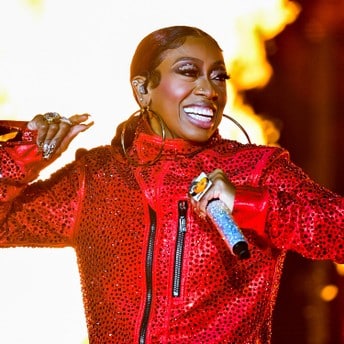
Trending on Billboard
Missy Elliott says fans have been urging her to get her song from the Shark Tale soundtrack on streaming.
In a post on X, Missy tagged both Universal Music Group and Geffen Records and pleaded with them to put “Car Wash” — the closing song from the 2004 Dreamworks animated film Shark Tale — up on streaming. The rap legend had responded to a fan who appeared devastated that the song wasn’t available to listen to.
“@UMG @GeffenRecords the fans tagged me wanting to know why the song ‘Car Wash’ on #Sharktale soundtrack not on streaming sites,” she wrote. “Can you please help out because many of them have been asking as you can see and miss it.”
Explore
See latest videos, charts and news
“Car Wash” closed out the film, and was sung by Christina Aguilera and featured Missy. Most of her bars were of course shark related, including, “Y’all can make your bets, y’all small tuna fish, I’m one big catch/ Shark slayer, bow down player.”
In other news, Victoria Monet recently praised Missy, and said it was beyond time to give the rapper her flowers.
When asked why, Monet explained that Missy can still rock out when she needs to.
“Her show is incredible,” Monet said while walking the red carpet at the Femme It Forward Give Her FlowHERS Gala. “She’s still performing, like, she’s in her 20s, and I feel like we haven’t given her her moment, like, the tribute show and the, you know, events like this where she can get her flowers…I feel like we just need a few more of those for her, because she’s incredible, and she’s done so much, and influenced a lot of our childhoods.”
Check out the tweet below.
.@UMG .@GeffenRecords the fans tagged me wanting to know why the song “Car Wash” on #Sharktale soundtrack not on some streaming sites…Can you please help out because many of them have been asking as you can see and miss it🙏🏾☺️— Missy Elliott (@MissyElliott) November 25, 2025
Trending on Billboard Tems explained to a fan why she hasn’t returned to Uganda, and the reason is pretty understandable. In a Q&A session on Tuesday (Nov. 25), Tems was asked by a fan to elaborate on why she hasn’t returned to the African country. “What’s the lore behind you not coming to Uganda? #AskTems,” […]
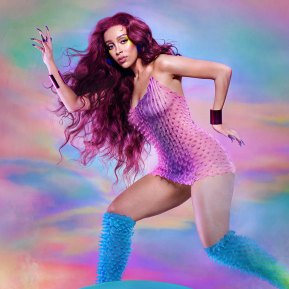
Trending on Billboard Doja Cat and SZA’s groovy “Take Me Dancing” collaboration caught fire on social media thanks to a viral TikTok trend, which was created by an Australian superfan named Joel Houwen in September following the arrival of Doja’s Vie. Explore See latest videos, charts and news She brought the Tour Ma Vie World […]
Trending on Billboard
Most artists probably wouldn’t want to be on the receiving end of a diss from Eminem, but Lil Yachty wears it like a badge of honor.
Em took a shot at the Atlanta rapper on 2018’s “The Ringer” when he rapped, “Get this f—kin’ audio out my Audi yo, adios/ I can see why people like Lil’ Yachty, but not me though/ Not even dissin’, it just ain’t for me/ All I am simply is just an emcee.”
Seven years later, Yachty reflected on getting name-dropped by Em during an appearance earlier this month on Tea Time W/ Raven & Miranda.
Explore
See latest videos, charts and news
“Eminem actually dissed me, but I thought it was amazing. If you say my name, it’s like, you could’ve said anyone’s name,” Yachty said. “So, you’re saying my name? I’m like, ‘That’s kinda fire.’ I was like, ‘You could’ve said anybody and you said me?’ Am I the top of the nobodies? I wasn’t mad at it all, I was like, ‘Fire!’ I’ll take it any day of the week.”
Yachty was one of the faces of the SoundCloud generation of rap that exploded in the mid-2010s. He faced backlash at times, as some classified his bubblegum trap as “mumble rap.”
The ATL native is far from the last and not nearly the first public figure to have Eminem throw a lyrical jab in their direction. At the time, Yachty tweeted out that he was cool with being dissed by Slim Shady.
“Lmao me personally I think it’s fye Eminem took a shot at me.. I f–k wit Eminem,” he wrote on Twitter in 2018, per HotNewHipHop.
“The Ringer” landed on Em’s Kamikaze album in 2018 and the Platinum track peaked at No. 8 on the Billboard Hot 100.
Watch Lil Yachty’s interview and listen to “The Ringer” below.
Trending on Billboard
It was 20 years ago this week (Nov. 29) that 16-year-old Chris Brown vaulted onto the scene with his self-titled debut studio album and triple platinum-certified Hot 100 No. 1 “Run It!” And in celebrating that anniversary, Brown — under the guidance of manager Anthony “Ant” Wilson of Tycoon Music — has achieved various other career milestones during what’s become an even more momentous year for the singer-songwriter.
Brown kicked off 2025 with the best R&B album Grammy for his latest album 11:11 (Deluxe) — his second win in that category after 13 years. He’s now closing out the year with two more nominations for the 2026 Grammy ceremony: best R&B song and best R&B performance for “It Depends” featuring Bryson Tiller, which peaked at No. 16 on the Hot 100. Prior to that in 2024, Brown picked up his first RIAA Diamond-certified single for “No Guidance” featuring Drake.
Related
Of witnessing Brown’s second Grammy win, Wilson — a 2025 R&B/Hip-Hop Power Players honoree — told Billboard in August, “Winning isn’t everything, but it feels good. And the consistent recognition of his artistry continues to solidify him as one of the biggest artists in the world.”
Between those Grammy bookends, Brown embarked on what’s since been logged by Billboard Boxscore as his highest-grossing live outing to date, the Breezy Bowl XX World Tour. Spanning 39 cities and 48 shows, his 20th anniversary and first-ever stadium run (June 8-Oct. 16) earned $300 million and drew 2 million fans across North America, Europe and the U.K. Accompanied by Tiller as a special guest through the run and Grammy-nominated artists Jhené Aiko and Summer Walker on select dates, Brown also welcomed pop-up performances along the way by Usher, 50 Cent, GloRilla, Tyga, Bow Wow, Sexyy Red and Davido during his three-hour, 56-song set.
It’s Brown’s indefatigable energy and love of performing that Wilson first focused on strategically when he became the global star’s manager 10 years ago after predecessors Tina Davis and Mike G.
“We started off doing club and spot dates,” Wilson recalls. “Then we got the Heartbreak on a Full Moon tour [2018 with H.E.R., 6lac, and Rich the Kid]. I just wanted to get him back to the touring part of the business because I felt he could touch the most fans there. That was my initial goal.”
Wilson also created the annual Tycoon Music Festival. Presented this year in association with Live Nation and 313 Presents, the festival marked its sixth anniversary on April 19 at Little Caesars Arena in Detroit. Headlined by Brown, the lineup also starred Skilla Baby, Fabolous, Gucci Mane and Wiz Khalifa with surprise appearances from Sexyy Red, G-Herbo, Payroll Giovanni and Tee Grizzley.
Based in Las Vegas, as is Brown, Wilson recently spoke with Billboard about what’s next on the drawing board for him and his superstar client.
Chris Brown and Anthony “Ant” Wilson
Travis Colbert
What’s it like managing such a tireless artist as Brown?
We don’t sleep too much over here [laughs]. That’s because he stays up working in the studio he has in his house. He’s in that studio every day until we put out an album. And then the hard part before that is figuring out what songs are going to make the album. Chris also has a billion ideas about different things. So another hard thing is trying to get those billion ideas down to at least 10.
Talk about the rapport between the two of you, which is an important part of the artist/manager collaboration.
I met Chris when I was working with Bow Wow. that’s when Tina was involved. She’s a friend of mine as well. So I used to help out whenever she needed some assistance. Mike G was there too; we were all together then. But Chris is my brother first then it’s business, I don’t hope that he wins. He has to win because he’s my family. So that’s why there is no sleeping because I’ve got to make sure he does. I don’t know if there’s a blueprint on how to manage an artist. Every artist is different. But there is one key thing: understanding the artist and the fans of that artist.
Very few artists have made the successful transition from teen to adult star. Why has Brown been able to cross that bridge?
A lot of artists can do one thing; they can either sing or they can dance. But not a lot of artists can perform the way that he does: he’s singing, he’s dancing, he’s crying, he’s laughing, he’s flying, He’s doing everything he can to please fans. He’ll take less money just for the production to be what it is. He just wants [his performance] to stand out. Breezy XX was originally three and a half hours. I’m like, “Chris, come on. We’re going to run into overtime on every show. Like I said before, that’s the hardest thing … trying to get things down to where we’re both happy [laughs].
A new album coming before this year is out has been rumored given the 20th anniversary. Any hints about the next project?
There’s always an album. The name of it always changes. The songs always change. Even with the last album, we were in the studio putting another song together on the day before it came out. So I can’t say the name or a date for the album. I’ll leave it open because he could wake up and say let’s put it out next week. I’m ready though. I have it [the album] at the moment, but it changes every week.
Chris Brown performs in San Diego, CA, on September 18, 2025.
Acre Media
What else is next? A concert movie à la Taylor Swift and Beyoncé or a return to acting?
He loves and wants to act. There are acting classes, and he’s gearing up for that. I also think the Super Bowl would be a great place for him. I believe it will happen.
Have there been any overtures on that front?
We’ll just see.
How has it been navigating the negativity that he still encounters as you work to move his career forward?
It’s nothing that I’m not used to at this point. We just smile and keep going. I just try to show improvement with work over the words, you know? I think that’s the best way. But his kids ground him. He’s a great, involved dad. I also think Chris’ fans love him so much because they can relate. He’s a real person who’s gone through things that others have but he did it in front of the world. So I feel like that’s his legacy: going through life with everyone else.
Now that Verzuz is back, is the long-rumored Usher/Chris Brown match-up a stronger possibility?
It may. Usher and Swizz Beatz are friends of mine; Swizz recently spoke to me about it. I’m not saying no if it makes sense.
Beyond your ownership of the Tycoon Festival, what other projects are you shepherding?
I also work with 50 Cent in a company called the Green Light Gang. We have 40 TV shows [in the works] at the moment and a few movies. We’re also going to build a production company in Shreveport, Louisiana. So that’s my new baby, television.

 State Champ Radio
State Champ Radio 
